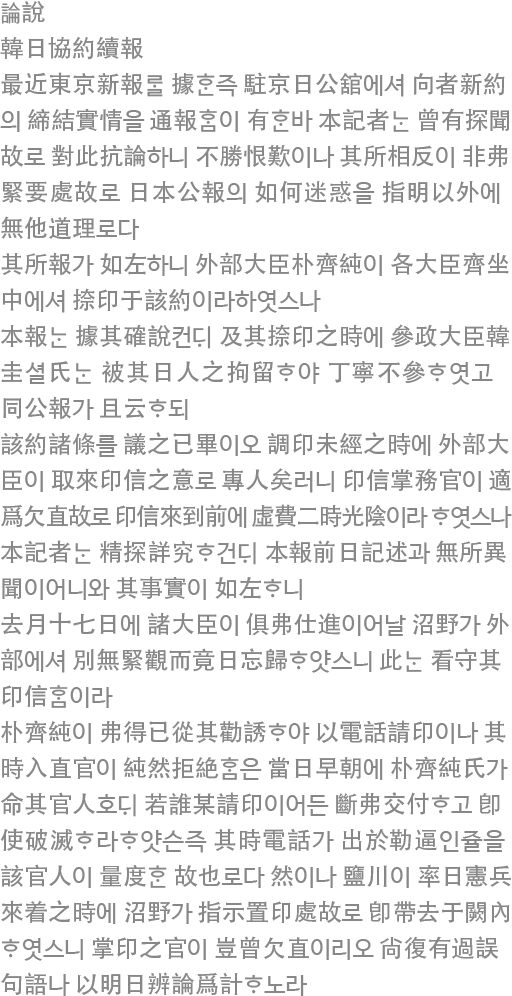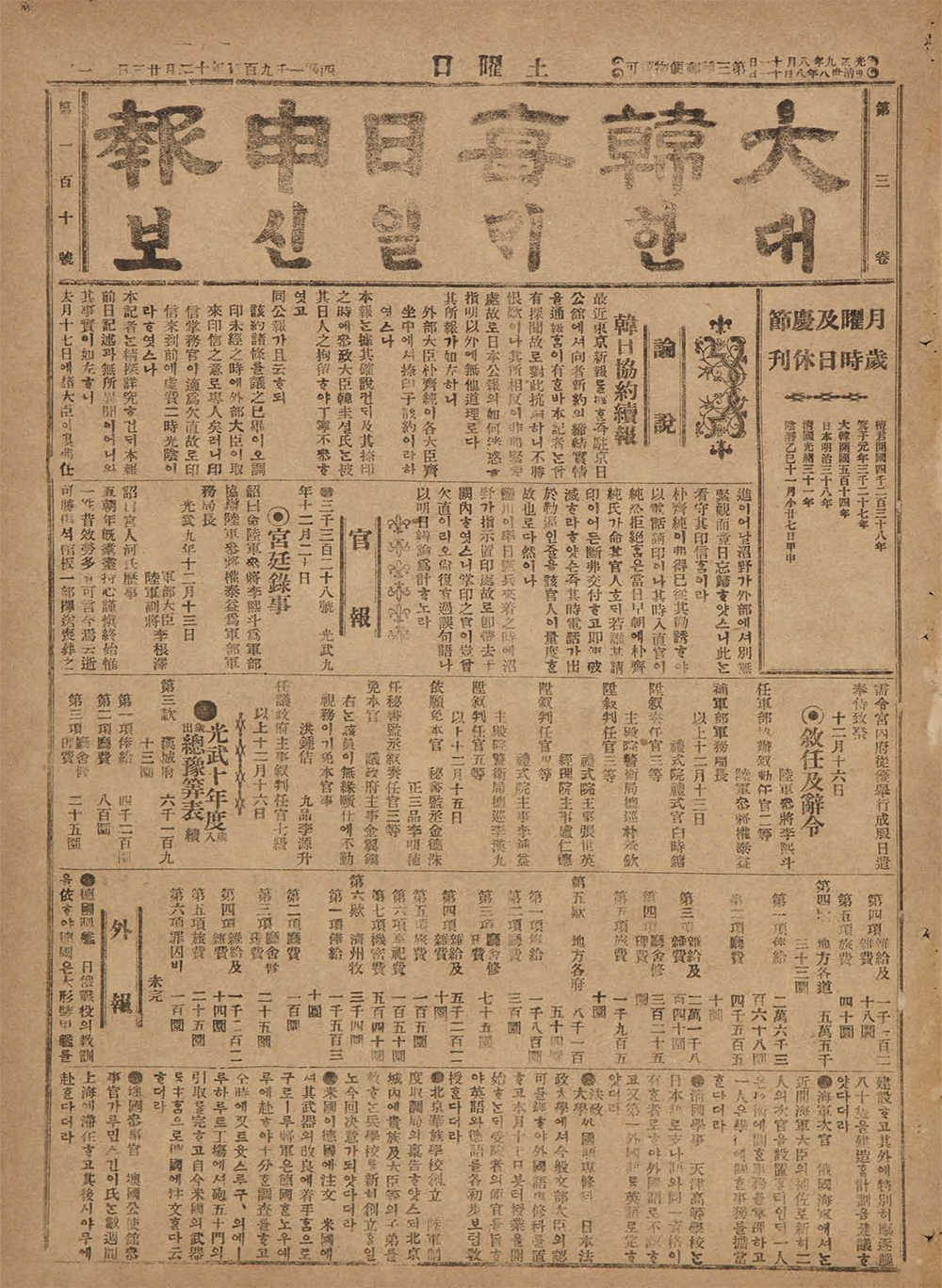Dokdo, the First Victim of Japan’s Aggression Against the Korean Peninsula
06. “Follow-up Report on the Korea-Japan Treaty,” Daehan Maeil Shinbo (December 23, 1905)
Daehan Maeil Shinbo
“Follow-up Report on the Korea-Japan Treaty,” Daehan Maeil Shinbo (December 23, 1905)
[Translation]
Editorial
“Follow-up Report on the Korea-Japan Treaty (the Eulsa Restriction Treaty)”
According to the recent Tokyo Shinpo*, the Japanese Embassy in Seoul notified the circumstances of the conclusion of the new treaty (the Eulsa Restriction Treaty) the other day. As this journalist very quickly made inquiries [and thereby knows the actual circumstances], I refute this [official gazette article] and cannot suppress grief. Still, a refutation is critical as there is no other way than clearly pointing out the misleading information in the Japanese official gazette. What was notified is as follows: With all the ministers present, Foreign Minister Park Je-sun stamped a [Foreign Ministry] seal on the treaty. Based on what was confirmed by this newspaper, by the time of sealing, Deputy Prime Minister Han Gyu-seol had been detained by the Japanese and was probably not present.
The same official gazette also said that, when the discussion on the provisions of the treaty had been completed and it was yet to be sealed, the foreign minister was to bring the seal and others were made to stay. However, the official who was in charge of the seal happened not to be at his post, so two hours were wasted until the seal arrived. However, this journalist thoroughly investigated the situation and did not hear anything different from the previous report by this newspaper. The truth is as follows: on the 17th of last month, though there was no minister at work, Numano** forgot to come back from the Foreign Ministry office all day long even though he had no particular business there. This was to collect the seal.
Park Je-sun was compelled [by the Japanese] to make a call to ask for the seal. Then, the official on duty outright refused it. This was because Park Je-sun ordered the official early in the morning on the same day to never hand over the seal if asked by anyone and to immediately destroy it, and the official believed that the call had been made under coercion. However, when Shiokawa*** arrived with Japanese military police [at the Foreign Ministry office], Numano pointed to where the seal was kept, and they immediately took it to the palace. The official in charge of the seal would not have left his post early. Rather, there are other faults [in the official gazette article], which I intend to refute tomorrow.
* A Japanese government-sponsored paper
** Yasutaro Numano, a then Japanese probationary diplomat
*** Ichitaro Shiokawa, a Japanese translator
[Original Text]















